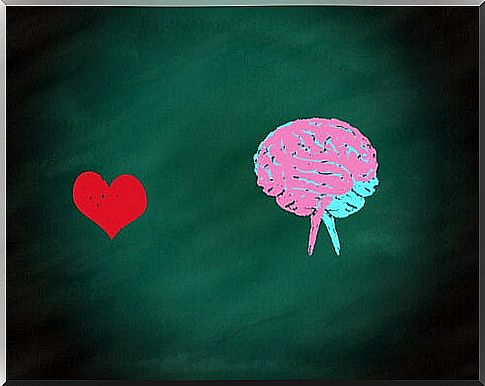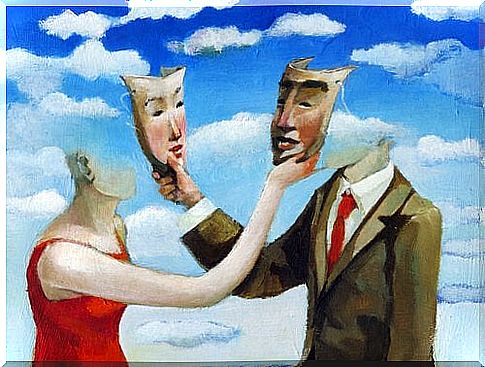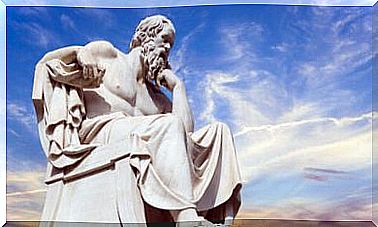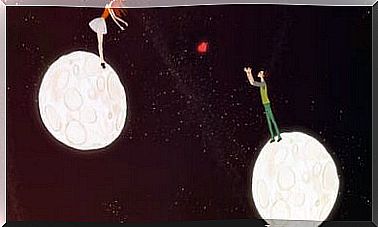The Reflection Of Our Everyday Lies

Make decisions from the heart or according to the mind, speak the truth or rather twist reality to your own advantage? This eternal dilemma has long permeated our thinking, and therefore our lives. Originally formulated eloquently – in the heyday of Greek civilization – by the cultural icon Aristotle, who was literally called ‘The Philosopher’ because of his philosophical work.
In addition, Aristotle was also widely known as ‘The Scientist’, because he was one of the first to lay the then revolutionary foundations of the modern scientific method: making discoveries through observation and experiment, instead of merely basing yourself on abstract logical reasoning.
Aristotle regarded not the brain, but the heart as the most important organ of man – which he also called the true coordinator of our sensory sensations and motor movements. There, in the middle of our chest, according to him, all environmental information is intuitively integrated, and there, between the lungs, is also the energetic-spiritual center of our consciousness.
Aristotle offers several explanations as to why our heart should – in his view – be seen as the principal operating system behind our behavior. In his writings he gives all kinds of arguments, for example: the heart is located in the absolute axis of our body, both vertically and horizontally (with outstretched arms), and is the source of our emotional intelligence.

To further support his hypothesis, Aristotle pointed to the fact that the heart beats faster in response to some stimuli —whether simple external stimuli or complex, internal feelings— while the brain does not seem to be affected in the same way.. He dared to claim that if we carefully opened the skull, a surgeon could even cut pieces here and there without the organism showing symptoms of stress or pain. The heart, on the other hand, would be deeply disturbed in the same scenario.
People who deceive themselves are masters at deceiving others
Self-delusion is a common trait among homo sapiens. Our brain knows it is happening there, but activates multiple perceptual mechanisms us from inside a parallel, albeit very personalized interpretation of the present reality – often riddled with lies, we no longer see time at one, blind to believe , keep repeating, and bet opportunistically.

A study published in the journal Plos One , concluded that individuals who put themselves systematically fooled even his best at deceiving others. These research results have been found and verified by various British universities (including those of Newcastle, Exeter, Queen Mary and University College in London).
The group of students in this social experiment were asked to rate themselves and the other participants on a scale of one to ten. Those who gave themselves a higher score appeared to influence their fellow candidates in such a way that they also rated them as better than average, independent of the delivered, objectively measurable performance. As a control, the entire test was repeated six weeks later, with exactly the same result.
Can self-deception – for the individual – be beneficial?
According to Robert Kurzban, an evolutionary psychologist at the University of Pennsylvania and author of the book Why Everyone (Else) Is A Hypocrite [Why everyone is a hypocrite], is ourselves be deceived so bad, especially for a super-social species as Human. The lies we sometimes tell (for good) may have a specific function…

Robert Kurzban has two basic ideas. On the one hand, given the great physiological and neuronal variety (overlapping structures, circuits, and lobes) of the mind, it seems quite logical that we regularly hold conflicting beliefs—from strictly sensory impressions to moral issues. On the other hand , we have to assume that the outside world exists, while our brain only has access to ‘data’ registered by the body, and then assembles, or edits it, into our so-called self – evident experience. In short, we have no direct access to the suddenly mysterious, postulated ‘objective reality’, but only to its brain-generated selective interpretation.
According to Kurzban, we humans are evolved beings, and evolution is a highly competitive process. We have therefore learned – out of necessity – to compete with our environment, and with potential competitors, in every possible way, including cunning and deceit. After all, in terms of survival alone, you can decisively benefit from making others believe things that are actually not true at all.
There may be a thousand and one ways in which we can cheat each other – from person to person – but the key question we should ask ourselves is: ‘Who is fooling whom?’, ‘After all, isn’t it me? myself who – paradoxically – keeps getting tricked by me ?’, or ‘Is this just a selfish game that I can’t stop playing’? Because false views can indeed be used tactically and manipulatively to get our way, or force it, and hypocritically take advantage of it – at the expense of others.
Authenticity: I am me, you are you
The Gestalt Prayer was written by Fritz Pers, a great neuropsychiatric psychoanalyst who, along with his wife Lore Posner, tried to explain in a simple way how we as humans create our world… Read more.









